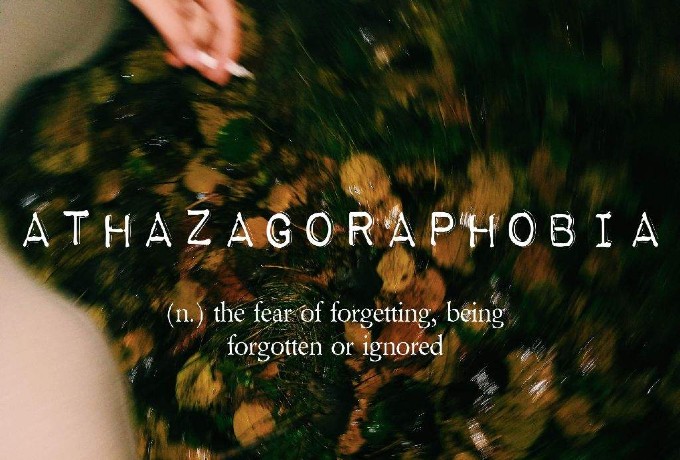What is athazagoraphobia?
Long-term anxiety disorders that can interfere with daily life are called athazagoraphobia. Strong emotions of panic, worry, tension, and terror can be brought on by the illness for certain people. In extreme situations, you may have psychological or physical side effects that interfere with your day-to-day activities. The dread of forgetting something or someone, as well as the fear of being forgotten, is known as athazagoraphobia. For instance, you or a loved one may have worry or be afraid about memory loss or Alzheimer’s disease. This may result from providing care for a person suffering from dementia or Alzheimer’s disease.
What causes the fear of being forgotten
Although the precise cause of athazagoraphobia is unknown, specialists think that certain phobias are linked by genetic and environmental factors. These could range from specific memory-related phobias to direct family ties, such as a relative suffering from dementia, or from childhood trauma such as being abandoned as a young child. The majority of phobias fit into specific categories. These could be associated with things like books, the environment like a fear of heights, or situations like a dread of getting Alzheimer’s disease.
Certain phobias may be more likely to affect you if you have:
- A terrible event that sets off the fear
- A clear connection, such as having a family member with a phobia or anxiety Problem; being sensitive; or being quiet or reserved
particular phobias are classified according to particular criteria in the Diagnostic and Statistical Manual of Mental Disorders (DSM-5) by the American Psychiatric Association (APA). Athazagoraphobia is not yet recognised by the American Psychological Association as a distinct kind of phobia or illness.
On the other hand, relatives of those suffering from dementia or Alzheimer’sTrusted Source could worry that their loved ones won’t remember them. An immediate connection, such as a family member experiencing memory loss, might cause persistent anxiety and fear.
Athazagoraphobia symptoms
Depending on how severe the phobia is, different forms of phobias have different symptoms. Among the most prevalent symptoms, anxiety is felt by most people. Some people could have a combination of emotional and physical symptoms.
They include:
- Panic attacks
- Body aches
- Muscle tension
- Increased heart rate
- Increased blood pressure
- Dizziness
- Restlessness, nervousness
- Fainting
- Sweating
- Nausea
- Depression
- Avoiding social situations
- Lack of focus or concentration
How to Cope
Fears are athazagoraphobia. As a matter of fact, 12.5 percent of Americans, according to the National Institutes of Health (NIH), have experienced a particular phobia at some point in their lives. Most people don’t seek treatment for moderate anxieties they can manage.
Some people’s lives can be adversely affected by the severity of their worry and terror. Acquiring a few coping mechanisms might lessen the phobia and offer relief.
Some helpful coping tips include:
- Exercise such as yoga
- Focused breathing techniques
- Aromatherapy
- Balanced diet
- Using a thought diary
- Having a support system
- Learning to lower stress by avoiding triggers of phobia
When to see a medical professional
Everyone experiences panic or fright occasionally. It could be beneficial to speak with a qualified mental health expert if your athazagoraphobia is persistent, so bad that it interferes with your everyday activities, puts your health in danger, or both.
Professionals in mental health can assist by:
- Discussing what’s causing your anxiety
- Helping you learn more about your specific phobia and triggers
- Performing a physical exam and getting your health history
- Ruling out other health conditions or medications as a problem
How is athazagoraphobia diagnosed?
Based on the DSM-5 criteria for symptom severity, any phobia can be diagnosed. Since the DSM-5 criteria do not recognise athazagoraphobia, a medical expert will typically examine your medical history and symptoms. A study of any early trauma, family history, and other relevant circumstances that may be the source of your fear or anxiety may be part of this.
Athazagoraphobia treatment
The severity of the problem determines how any anxiety disorder should be treated. In most cases, it comprises counselling, coping mechanisms, and, if necessary, medication.
- Cognitive behavioral therapy
- Mindfulness and breathing techniques
- Anti-anxiety medications
- Antidepressant, such as selective serotonin reuptake inhibitors (SSRIs)
Conclusion
Fear, tension, panic attacks, and moderate anxiety are examples of common phobias. Although many athazagoraphobia prevent themselves from experiencing life to the fullest, there are excellent methods available to assist manage phobia. Find out what makes your phobia worse and what relieves your anxiety. This may be taking a walk, enjoying aromatherapy, a lovely cup of tea, or relaxing music. Cognitive behavioural therapy is one long-term approach that can help with symptoms and offer clarity, balance, and balance. Anxiety-reduction apps are widely available today. While some require a nominal subscription charge, others are free. Try some of these if you have a mild athazagoraphobia to see if they help you.


